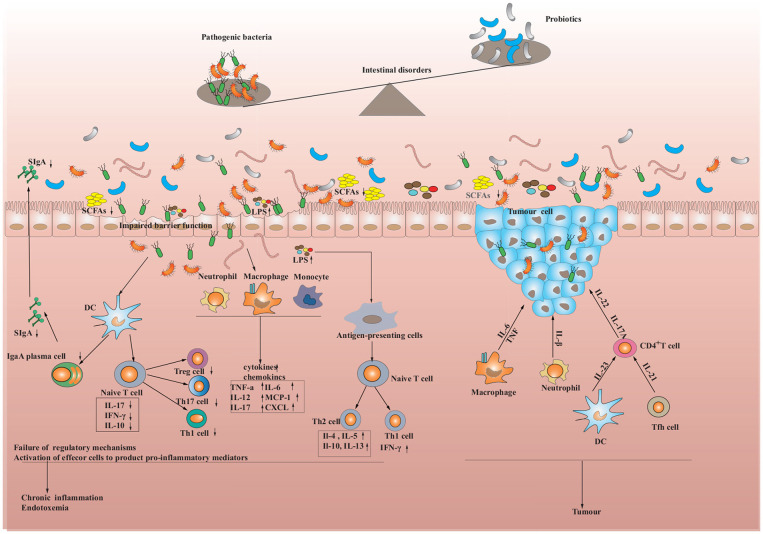Figure 1.
Intestinal dysbiosis and the immune response in the intestine. When pathogens are encountered, dendritic cells capture the pathogens' antigens through epithelial cells, which are then processed. The processed antigens are presented to T cells and trigger their activation. Activated T cells stimulate the secretion of cytokines by epithelial cells, which in turn increases the production of antimicrobial peptides. Meanwhile, T cells and dendritic cells can also activate B cells, transforming them into plasma cells that produce Immunoglobulin A (IgA), which as a consequence provides further resistance against pathogen invasion. However, if the immune cells continue to activate or the pathogens persist in stimulating the immune system, the functioning of regulatory cells may be suppressed, leading to chronic inflammation and the development of metabolic diseases, inflammatory bowel diseases (IBD), and tumors.

